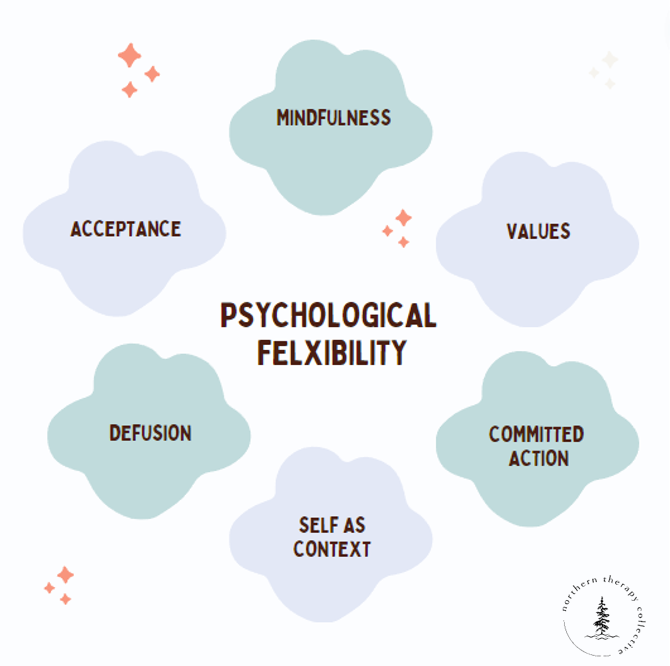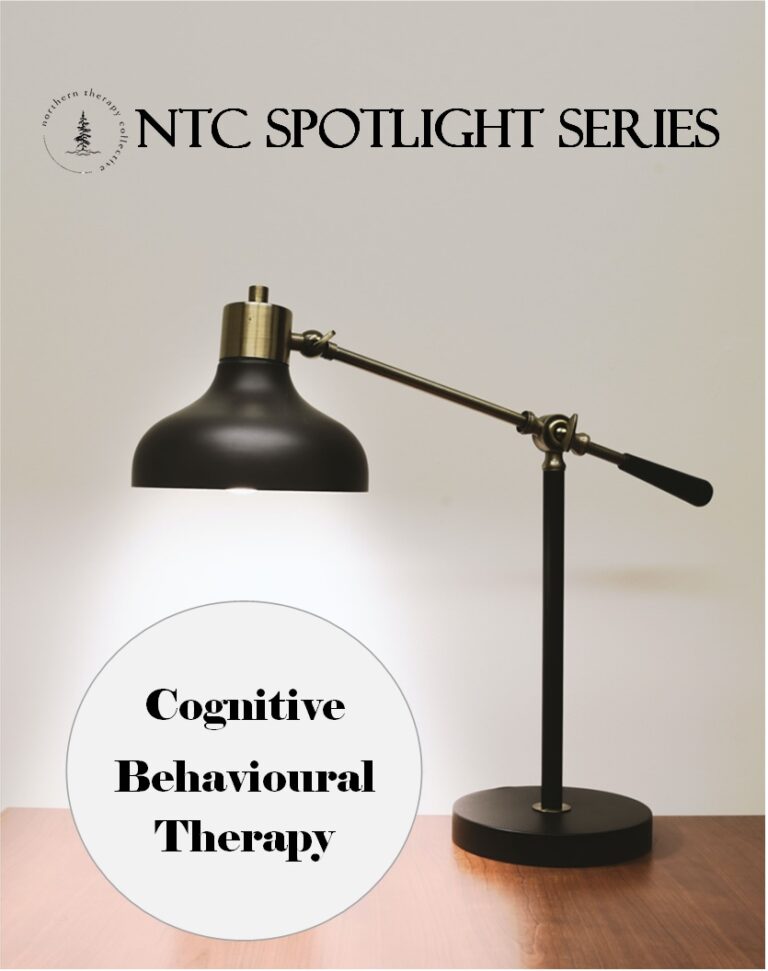SPOTLIGHT ON: Acceptance & Commitment Therapy (ACT)
Acceptance and Commitment Therapy (or “ACT”) shares a lot of the same DNA as its “sister” therapies of CBT and DBT (check out previous posts in the NTC Spotlight series for more information on each of these approaches). Much like cognitive-behavioural therapy, ACT aims to foster new perspectives (or ways of thinking) and healthy behavioral changes in the pursuit of a “rich and meaningful life”. It also follows the DBT theory of leaning into the “dialectical” (or opposing) forces of acceptance and change, for it is only by “dropping the struggle” with uncomfortable thoughts and feelings that we can find a way forward to productive and meaningful change. ACT relies on a wide variety of creative interventions such as: metaphors and paradoxes, mindfulness skills, values inventories, and experiential teachings.
MAJOR PLAYERS:
- Dr. Steven C. Hayes – is considered the “founding father” of ACT, based on his work from the 1980’s
- Dr. Russ Harris – has developed a great deal of ACT self-help material (including The Happiness Trap program)
FOOD FOR THOUGHT:
- “Acceptance doesn’t mean resignation; it means understanding that something is what it is and that there’s got to be a way through it.”
- Michael J. Fox
- “We as a culture seem to be dedicated to the idea that ‘negative’ human emotions need to be fixed, managed, or changed – not experienced as part of a whole life. We are treating our own lives as problems to be solved, as if we can sort through our experiences for the ones we like and throw out the rest.”
- Dr. Steven C. Hayes (from his website https://stevenchayes.com/a-human-life-is-not-a-problem-to-be-solved/)

DEFINING FEATURES:
- Evidence-based (well supported by psychological research)
- Applicable to a wide variety of psychological problems (depression, anxiety, etc.)
- The aim of ACT is to foster “Psychological Flexibility”, which can be defined as a total acceptance and awareness of the present moment (including: thoughts, feelings, sensations) and consistently moving or behaving in the service of personal values
- In ACT, Psychological Flexibility is achieved through 6 “Core Processes” (see graphic above)
POSSIBLE INTERVENTIONS:
- Acceptance Skills (embracing the full extent of our thoughts, feelings, and physical sensations as basically “normal” without attempts to repress or alter them)
- Mindfulness Skills (learning to be present with uncomfortable thoughts and feelings without judgment or struggle)
- Cognitive Defusion (creating a sense of distance from one’s thoughts to prevent emotional entanglement and/or personalization)
- Identifying Personal Values and Passions (what do I really care about?)
- Self as Context (getting in touch with the unbiased “observer” self and practicing perspective-taking)
- Committed Action (consistently choosing or moving towards life-affirming/helpful behaviors and declining or moving away from self-defeating/unhelpful behaviors)








